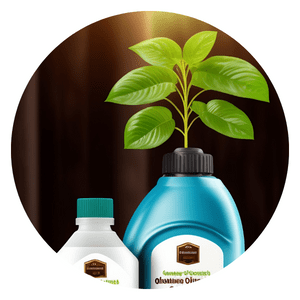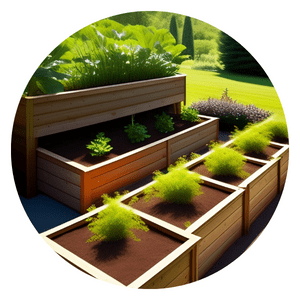Can You Grow Eggplant in New Jersey?
Eggplant is a popular vegetable that has become a staple in many households, thanks to its versatility and nutritional benefits.
It’s often used in various dishes such as eggplant parmesan, ratatouille, and curries.
However, growing eggplants can be challenging due to their specific requirements for soil type, temperature, and care. This leaves many gardeners wondering whether they can successfully grow eggplants in New Jersey.
New Jersey is known for its long growing season and fertile soil that provides an ideal environment for various crops.
But with its unpredictable climate and harsh weather conditions during the winter months, it’s essential to know whether eggplants can withstand these conditions before planting them.

New Jersey Eggplant Menu
Extend the Growing Season
Eggplants are a warm-season crop that require at least 100 days of frost-free growing season to produce mature fruits.
New Jersey, being situated in the Northeastern region of the United States, experiences a relatively short growing season that lasts from mid-May to early October.
To maximize your eggplant harvest in this region, you can use season extension techniques such as starting your eggplants indoors early.
Starting eggplants indoors allows them to establish root systems and develop foliage before planting them outdoors when the weather is warm enough.
Typically, eggplants should be started indoors about six weeks before transplanting them outside. You can either purchase seedlings from nurseries or start your own seeds using grow lights or sunny windowsills.
Another way to extend the growing season for eggplants is by using row covers or plastic tunnels to protect them from cold temperatures and frost.
Row covers are lightweight fabrics that allow sunlight and water to penetrate while creating a barrier against wind and pests.
Plastic tunnels are structures made by arching PVC pipes over raised garden beds and covering them with clear plastic sheets. They create a greenhouse-like environment that traps heat and moisture, extending the growing season by several weeks.
Soil Testing and Amendments
Soil testing and amendments are essential for successful gardening in New Jersey, especially when it comes to growing eggplants.
New Jersey soils can vary significantly in their nutrient content and pH levels, which can affect the growth and productivity of plants.
Conducting a soil test is the first step in identifying the specific needs of your garden soil.
A soil test will reveal important information about your soil’s pH level, as well as its levels of nitrogen, phosphorus, potassium, calcium, and magnesium.
Based on these results, you can determine which amendments are necessary to improve your soil quality for eggplant growth.
Common amendments include lime or sulfur for adjusting pH levels and fertilizers or composts to increase nutrient availability.
In conclusion, conducting a soil test is crucial for any gardener who wants to grow healthy and productive crops like eggplants in New Jersey.
By identifying the specific needs of your garden soil through a soil test and amending accordingly with appropriate products, you can ensure optimal conditions for plant growth and success.
Mulching for Moisture and Weed Control
New Jersey summers can be hot and dry, which is not favorable for eggplant growth.
To preserve soil moisture and regulate the soil temperature, applying a layer of organic mulch around the plant is essential.
Mulch traps the moisture within the soil, reducing water loss due to evaporation.
Apart from conserving moisture, mulch also helps in controlling weeds that compete with eggplants for nutrients. Weeds can grow rapidly during summer months; hence they need to be controlled before they take over your garden bed.
Applying a layer of organic mulch creates an unfavorable environment for weed growth by blocking sunlight, which inhibits their germination.
In summary, using organic mulch will conserve soil moisture and reduce weed growth around your eggplant plants.
It’s important to note that not all types of mulches are suitable for eggplants; it’s recommended to use straw or grass clippings as they decompose faster than other materials like wood chips or bark.
With proper care and maintenance, you can grow healthy and vigorous eggplants in New Jersey’s hot summers.
In the Garden State's soil so rich and fine, A purple jewel of vegetable divine. Eggplant thrives amidst the summer's sun, Bearing fruit for recipes that are never done. Cut it thick or slice it thin, Grill or fry, let fun begin. Grow eggplant in New Jersey with care, And you'll have heaven on your plate to share.
Chappy The Gardener
Pest and Disease Management
Eggplants are an excellent crop to grow in New Jersey’s warm and humid climate.
However, it is essential to be aware of common pests and diseases that can affect eggplant plants.
One of the most damaging pests for eggplants is flea beetles. These small black or brown beetles feed on the leaves, leaving tiny holes that later become large, irregular patches.
To prevent flea beetle infestations, consider using row covers or insecticidal sprays.
Another common problem for eggplants grown in humid climates is fungal diseases like verticillium wilt and powdery mildew.
Verticillium wilt causes leaves to yellow and curl before eventually dying off entirely, while powdery mildew appears as a white powdery coating on the surface of the leaves.
To combat these diseases, practice good hygiene by removing infected plant material promptly and avoiding overhead watering which can promote fungal growth.
Overall, with proper monitoring and control methods in place, New Jersey gardeners can successfully grow healthy eggplant plants despite the challenges posed by humidity-related pests and diseases.
Wind Protection
Eggplants are a warm-season vegetable that can thrive in New Jersey’s climate.
However, the state experiences strong winds, particularly along the coast, which can damage eggplant plants.
To protect your plants from wind damage, you should consider using windbreaks like fences, trellises, or planting them.
Fences provide an excellent barrier against gusty winds and can be made out of materials such as wood or plastic.
You will need to ensure that the fence is sturdy enough to withstand high winds by anchoring it securely into the ground.
Alternatively, installing a trellis next to your eggplant plants can also work well as a windbreak.
The trellis will not only protect your plants from strong winds but can also help support their growth.
Planting your eggplant in a sheltered location or creating a microclimate around them is another way to minimize wind damage.
Consider planting them near other tall crops or buildings that offer protection from the wind’s force.
Additionally, applying mulch around the base of your plants helps create a buffer zone between them and any possible debris lifted by strong winds.
By taking these preventative measures against harsh weather conditions such as strong winds in New Jersey, you can increase your chances of growing healthy eggplants successfully.
Choose the Right Variety
Eggplants are a warm-weather crop that can be successfully grown in New Jersey with the right variety.
Black Beauty is a popular choice for its high yield, dark color, and resistance to pests and diseases. This eggplant variety takes approximately 75 days to mature and requires full sun exposure and well-draining soil.
Rosa Bianca is another eggplant variety that thrives in New Jersey’s climate. This heirloom Italian eggplant produces large, round fruits with a mild flavor and creamy texture.
Rosa Bianca usually takes around 80 days to mature, making it slightly longer than Black Beauty.
Ichiban is an Asian eggplant variety that grows well in New Jersey’s hot summers. These long, slender fruits have a tender skin and sweet flesh that makes them perfect for grilling or stir-frying.
Ichiban typically matures within 65-70 days of planting and prefers rich, fertile soil with consistent moisture levels.
Overall, choosing the right eggplant varieties can significantly increase your chances of success when growing this crop in New Jersey’s climate.
It’s crucial to select varieties that are disease-resistant, suitable for your location’s sunlight conditions, and able to withstand the area’s temperature fluctuations throughout the season.
Start Indoors
Eggplant is a warm-season crop that thrives in New Jersey’s hot summer climate.
However, since the state experiences frost during winter, gardeners must start their eggplant seeds indoors before transplanting them outside.
The ideal time to plant eggplant seeds indoors is about 6-8 weeks before the last frost date.
Starting your eggplant seeds indoors gives them a head start and increases their chances of survival when transplanted outside.
You can sow the seed in small pots or seed trays using high-quality potting soil and place them in a sunny spot or under grow lights for optimal germination.
Once the seedlings are established, they should be transplanted into larger pots until they are ready to be placed outdoors after danger of frost has passed.
By starting your eggplants indoors, you’ll have healthy plants ready for harvest by late summer or early fall when they produce fruits that are perfect for grilling, roasting, or making into delicious dishes like moussaka and baba ghanoush.
Will eggplant survive the winter?
Eggplants are a common vegetable in many gardens and for good reason.
They are easy to grow, produce a large yield, and offer a range of culinary possibilities.
However, the question of whether eggplants can survive winter is one that many gardeners ask themselves.
In New Jersey, where the winters can be harsh, it is important to take precautions to ensure your eggplants have the best chance of survival.
One option is to cover them with frost blankets or other protective materials during cold spells.
You can also consider cutting back on watering as temperatures drop, as excess moisture can freeze and damage the plant.
Ultimately, whether your eggplant survives the winter will depend on a number of factors such as temperature fluctuations and how well you care for your plants.
By taking some basic steps to protect them from the elements, however, you can increase your chances of enjoying fresh eggplants well into the colder months.
In conclusion, growing eggplants in New Jersey is a great way to enjoy fresh produce right from your own garden.
With the proper preparation and care, you can have a bountiful harvest of this delicious and versatile vegetable.
Remember to choose the right variety for your location, provide ample sunlight and water, and protect against pests and disease.
By following these tips, you’ll be able to enjoy eggplants throughout the season.
So why not give it a try?
Start planning your eggplant garden today and reap the benefits of homegrown produce!
Click To Grow
Helps Us Grow – Share If You Like














